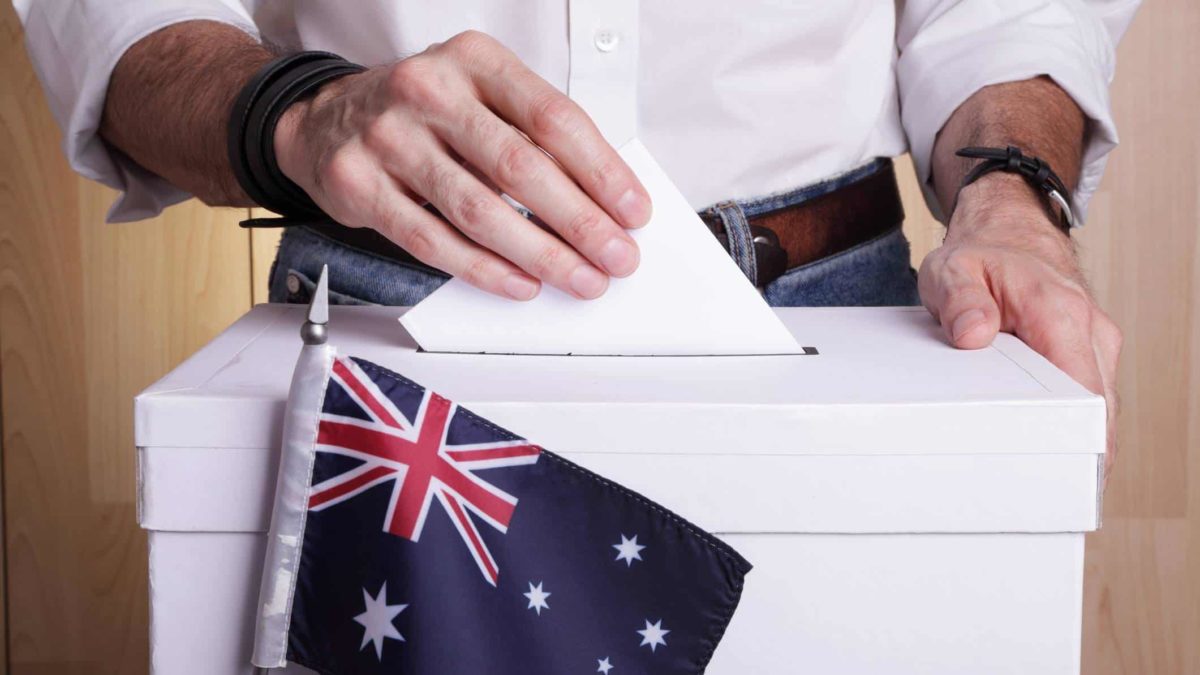With the federal election finally called for Saturday May 21, what does this mean for investing in ASX shares?
AMP Ltd (ASX: AMP) chief economist Shane Oliver analysed what patterns have been seen in the past, and what investors can expect this time.
Consumer and market sentiment around elections
There is a perception that elections cause the economy to slow down as consumers put away their wallets in the face of political uncertainty.
But this stereotype isn't entirely backed up by hard data.
"There is no clear evidence that election uncertainty [affects] economic growth in election years," Oliver wrote on the AMP blog.
"In fact, since 1980 economic growth through election years averaged 3.5%, which is greater than average growth of 3% over the whole period."
But as for ASX shares, Oliver said there is some evidence that the political variability causes them to drift sideways for a while.
And there is certainly no pattern of stocks going in a particular direction after a change of government, regardless of which party wins.
"Based on history it's not obvious that a victory by any one party is best for shares in the immediate aftermath," said Oliver.
"Shares rose sharply after the 1983 Labor victory but fell sharply after their 2007 win, with global developments playing a role in both. After the 1996 and 2013 Coalition victories shares were flat to down."
ASX shares do not perform better because of the choice of party
There is a stereotype that the Coalition is more "business friendly" and would therefore be better for ASX share prices.
And Oliver concedes, since World War II, ASX shares have returned 13% per annum under Coalition governments and 10% under Labor.
But context shows international events had more to do with that than the ruling party.
"It may be argued that the Labor governments led by Whitlam in the 1970s and Rudd and Gillard had the misfortune of severe global bear markets," Oliver said.
"And the economic rationalist and reformist Hawke/Keating government defied conventional perceptions that conservative governments are better for shares. Over the Hawke/Keating period from 1983 to 1996 Australian shares returned 17.2% pa."
Not much economic difference this election
Oliver reckons that the 2022 campaign, especially, shows very little difference between the economic policies of the major parties.
Labor was burned from its 2019 experience when a distinctive stance from the Coalition cost it a win.
"In the 2019 election, the ALP offered a radically different policy agenda focussed on a significant increase in the size of government (particularly via more spending on health and education) financed by a significant increase in taxation," said Oliver.
"Following its defeat at that election, with the tax agenda taking much of the blame, the ALP has adopted a less left leaning agenda going into this election."
Of course, the irony is that the COVID-19 pandemic then brought on a massive government under the Coalition anyway, with all the financial support handed out.
All this means that a change of government to Labor will not have any impact on where ASX shares would have headed anyway.
"Like the Coalition, the ALP is largely seeking to repair the budget through economic growth rather than austerity and its priority areas of energy, skills, the digital economy, childcare & manufacturing have a significant overlap with the Coalition," said Oliver.
"So, while there may be a little more nervousness in investment markets about Labor, it's hard to see a big impact on markets if there is a change in government."
One huge risk
So it seems the stock market's fate is not dependent on which party wins the May election.
But Oliver notes that there is one result that could trigger even more uncertainty on top of an already volatile investment environment.
"The main risk for investment markets may come if neither the Coalition or Labor win enough seats to govern, forcing a reliance on minor parties or independents," he said.
"[This] could force a new government down a less business friendly path — such as the Greens demanding an ALP led minority government implement their proposed super profits taxes – although the Senate may act as a brake on this."









